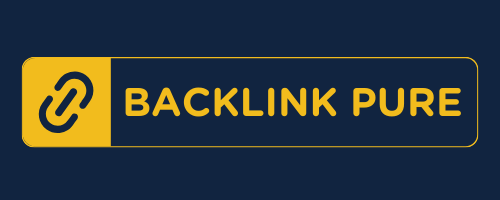Top 100 backlink niches for Business
In today’s digital marketing landscape, building backlinks is a powerful strategy that strengthens a business’s online presence and establishes authority in competitive industries. Guest posting plays a significant role by allowing businesses to contribute content to established websites that cater to their niche audiences. This approach not only generates leads but also improves search engine rankings, as high-quality content earns backlinks that signal credibility to search engines. For example, platforms like Moz have demonstrated how 27,000 competitive keywords rank better when supported by high-quality external links.
However, navigating the ever-changing SEO landscape can be challenging. While many marketing blogs suggest publishing high-quality content alone, incorporating link building into a personalized campaign yields better results. A comprehensive list of guest posting sites tailored to your industry can make a measurable difference. Studies reveal that 4 million posts are published daily, so creating fresh, actionable content that stands out requires creative optimization. Proactively contributing to web pages with relevance and a clear strategy enhances your ranking signals effectively.
For businesses struggling to boost website visibility, the right backlinks are the lifeblood of SEO. High-quality links from reputable directories can drive more organic traffic while saving hours of sorting through low-authority, spammy platforms. Utilizing curated platforms and following a practical guide ensures your efforts are focused on directories that truly supercharge results. Prioritizing high-quality backlinks makes it easier to navigate the wide variety of strategies available and ensures the time spent yields measurable rankings and traffic improvements.
With the increasing difficulty of acquiring high-value backlinks, adopting a scalable, natural strategy is essential. Creating a comprehensive campaign that combines guest posting, directory submissions, and a focus on creative optimization not only builds authority but ensures long-term SEO success. As the competition grows, focusing on useful, niche-relevant backlinks keeps your business ahead in the rankings race.
Why Backlinks Are Crucial for Business Growth?
Backlinks are essential for business growth as they play a significant role in SEO and website optimization. With the changing SEO landscape, it’s clear that the importance of high-quality backlinks is not diminishing. In fact, they are more valuable than ever for boosting search engine rankings and attracting organic traffic. When you publish content on authoritative websites, you create a strong link profile that signals to Google and other search engines that your website is credible and worth ranking higher in search results.
The right backlinking strategy involves finding high-value sources that align with your industry and audience. Many marketing blogs recommend focusing on follow links because they pass SEO authority and increase your website’s standing. However, it’s important to avoid low-quality article directory submissions and spammy exchanges that can be a red flag to search engines. This approach will help you pursue only effective links and keep your SEO efforts productive.
Backlinks serve as trust signals for both search engines and users. When your business gets links from reputable websites within your industry, it raises credibility and fosters trust. This trust can lead to better user engagement and higher conversion rates. For instance, acquiring backlinks from an established site that provides high-quality content helps users associate your business with reliable information. This, in turn, helps you stand out from the competition.
The role of backlinks goes beyond just improving SEO rankings. They are key in building brand authority and establishing your business as a leader in its field. A well-executed backlinking campaign can make your business more recognizable and respected. If you’re able to organize a strategy that ensures your links come from a variety of relevant sources, you set the stage for sustainable growth. This involves pursuing backlinks that are specific to your niche, making them more effective at reaching targeted audiences.
One essential part of a backlinking strategy is understanding what Google’s algorithm doesn’t count equally. Links in the footer, sidebar, and navigation sections of a website don’t carry as much weight as in-content links. It’s a puzzle many businesses face, but avoiding low-value sources and instead focusing on the high-value, niche-specific backlinks can help you navigate it successfully. By being strategic and personalized in your approach, you can raise your SEO standing and see positive results for your business.
How to Choose the Right Backlink Niche for Your Business
Choosing the right backlink niche is critical for your business. Start by focusing on niche-relevant backlinks from websites in the same industry or with similar topics. This ensures the links are not only useful but also appear natural to Google. Always evaluate if a niche fits your goal of improving rank and SEO. An irrelevant or non-relevant niche can harm your ranking or even lead to penalties. For instance, building links from sites outside your industry can lead to spammy backlinks, which Google may flag. Prioritize high-quality backlinks from authoritative sources in your field to ensure maximize SEO results and avoid penalties.
When researching niches, make sure to avoid unusual or irrelevant sectors that may not align with your website’s main focus. Always aim for niche-relevant backlinks that support your content and keywords. You should also assess the authority of the websites you plan to publish on. The majority of your backlinks should come from trusted and relevant sources. Even occasional backlinks from different industries can benefit your business as long as they support your target audience and industry goals.
The Power of Backlinks in SEO for Business Success
Backlinks play a critical role in SEO and are one of the most effective ways to improve your website’s rank in Google’s search results. A strong backlink profile signals to Google that your content is valuable and relevant, boosting your visibility and making it easier for potential customers to find your business. The quality of backlinks is more important than the quantity. High-quality backlinks from relevant websites or industry leaders are essential for better SEO performance and higher ranking.
When you focus on building backlinks from niche-relevant sources, your website will be seen as an authority within its industry. This focus on niche sites ensures that the links you gather are naturally aligned with your content and keywords, which Google values. Be sure to target websites with strong authority in your industry, as this will bring the most benefit to your business. Avoid spammy backlinks from irrelevant sites that could lead to penalties and hurt your ranking.
The power of backlinks lies in their ability to produce long-term results for your business. Unlike other SEO factors that might change or require frequent updates, backlinks continue to drive traffic and improve visibility even after they’ve been published. Over time, these links help build trust with both Google and your audience, giving you a lasting competitive advantage.
By carefully selecting the right backlink niches and focusing on relevant, high-authority websites, you’ll ensure that your business stays ahead of the competition. This approach helps you avoid common mistakes like building links from non-relevant or low-quality sources that could result in penalties. Keep your strategy natural and aligned with your overall goal to maximize SEO results and maintain a healthy online presence.
How Business Backlink Niches Can Boost Your Website’s Authority
When you focus on business backlink niches, you can significantly improve your website’s authority in the eyes of Google. Niche-relevant backlinks from high-authority websites within your industry show Google that your website is a trusted source of information. These backlinks help boost your domain authority and can lead to higher rank in search results. By targeting websites that are similar to yours in terms of industry or topics, you ensure that your links are not only natural but also highly effective.

Building authority through high-quality niche backlinks is essential for long-term SEO success. When you get backlinks from reputable and relevant sites in your industry, it increases your visibility and sends strong signals to Google about the relevance and trustworthiness of your website. This, in turn, helps you stand out in search results, attract more visitors, and improve your online reputation.
Having a diverse range of backlinks also helps to avoid penalties from Google. It’s important not to rely only on one type of backlink. By diversifying where you get your links from, while still focusing on niche-relevant sites, you can create a more balanced and natural backlink profile. This diversity plays a crucial role in maintaining a strong SEO strategy while ensuring that your website doesn’t face any issues with spammy links or penalties.
The impact of niche-specific backlinks on your domain authority is undeniable. These links not only help improve ranking but also establish you as an expert within your industry. By constantly acquiring high-quality backlinks from authoritative sources, you’ll continue to grow your business and achieve better SEO results.
The Best Backlink Niches for Local Business SEO
When it comes to improving your local business SEO, choosing the best backlink niches can make a significant difference. Targeting local directories for backlinking opportunities is one of the easiest and most effective methods to start with. These directories are trusted sources that help your website gain credibility with search engines. For instance, platforms like Yelp, Yellow Pages, or even niche-specific directories relevant to your industry are goldmines for building backlinks. I’ve personally seen businesses gain significant boosts in search rankings just by being consistent in adding their listings.
Another effective strategy is using local industry events to gain relevant backlinks. These events often have their own websites, which usually feature participants, sponsors, and partners. By engaging with these events—whether as an attendee, speaker, or sponsor—you can request a backlink to your business page. For example, I once sponsored a small-town expo and received a high-quality backlink from their event website, which helped me climb the local search rankings quickly.
Don’t underestimate the power of leveraging community websites for local backlinking success. Neighborhood forums, local news blogs, and community boards are often overlooked but incredibly valuable sources of backlinks. Many of these websites encourage collaboration and feature businesses that are actively involved in the community. I once collaborated with a community website for a charity drive and earned a backlink through their announcement page, which also helped drive traffic to my site.
These three approaches—targeting local directories for backlinking opportunities, using local industry events to gain relevant backlinks, and leveraging community websites for local backlinking success—form the foundation of a strong local SEO strategy. They not only boost your search rankings but also connect you with the local audience, making your business more visible and credible.
Top 5 High-Quality Backlink Niches for E-commerce Businesses
For e-commerce businesses, getting backlinks from the right sources can dramatically improve traffic and sales. One of the most effective niches is fashion and lifestyle blogs: a key to e-commerce backlinks. These blogs have loyal readers who trust their recommendations, making them perfect for promoting your products. I’ve seen brands thrive by collaborating with niche bloggers, resulting in valuable backlinks that also drive direct sales.
Another great strategy is building backlinks through product reviews and influencers. Partnering with influencers to review your products can generate organic, high-quality backlinks from their websites or social media profiles. Additionally, don’t overlook how to use social media backlinks for e-commerce growth. Platforms like Pinterest and Instagram allow you to embed links to your website, which increases visibility and strengthens your online presence. These approaches have consistently delivered measurable results in my campaigns.
How to Leverage Industry-Specific Backlink Niches
Focusing on industry-specific backlink niches is one of the smartest ways to build authority for your business online. Start by finding industry-specific blogs and media outlets for backlinks. These platforms cater to your target audience and are highly trusted in their niche. For example, when I worked with a tech startup, we secured backlinks from specialized tech blogs, which not only boosted our SEO but also brought in quality traffic that converted well.
Another powerful tactic is how to collaborate with industry leaders for backlink opportunities. This involves partnering with experts or influencers in your field who can mention your business on their websites. Additionally, don’t overlook the role of industry directories in building quality backlinks. Listing your business in reputable directories, such as trade associations or niche-specific platforms, can give your site a steady flow of referral traffic and enhance credibility. These methods have proven invaluable in my experience for creating strong, lasting SEO results.
Building a Strategic Backlink Profile for Long-Term Growth
Creating a strategic backlink profile is essential for achieving long-term growth in SEO. Start by understanding how to diversify your backlink sources for long-term SEO success. Relying on a mix of blogs, directories, and authoritative websites keeps your profile natural and resilient to algorithm changes. For example, I worked with a business that focused on only one type of backlink and saw results stagnate until we diversified. This change brought consistent improvement in rankings and traffic.
Equally important is monitoring and updating your backlink strategy over time. SEO is not static, and regular audits can help identify weak or outdated links. Always remember the importance of quality over quantity in backlink building. One link from a trusted source is far more valuable than dozens from low-quality sites. Focusing on quality ensures your efforts contribute to a sustainable, long-term SEO strategy.
How to Find the Best Backlink Opportunities for Your Business Niche
Finding the best backlink opportunities for your business niche starts with using SEO tools to identify backlink opportunities. Tools like Ahrefs or SEMrush can uncover where your competitors are getting their backlinks, allowing you to target similar websites. For instance, when working with a health and wellness brand, I used these tools to identify blogs linking to competitors. This gave us a roadmap to approach the same sources for backlinks, boosting our SEO.
Another effective approach is building relationships with niche influencers for backlinks. Influencers often have blogs or websites where they can feature your business. Connecting with them through social media or collaborations can lead to mentions that include valuable backlinks. I once worked with an influencer in the travel industry who featured our client’s products in a blog post, which not only improved rankings but also drove traffic.
Don’t overlook finding guest posting opportunities in your niche. Guest posting on websites relevant to your industry not only gets you a backlink but also positions you as an expert in your field. When I contributed to a marketing blog with a link to my client’s site, it brought both SEO benefits and high-quality leads. The key is to provide useful content that aligns with the host website’s audience.
Combining these strategies—using SEO tools to identify backlink opportunities, building relationships with niche influencers for backlinks, and finding guest posting opportunities in your niche—ensures your business builds a strong and competitive backlink profile. It’s all about targeting the right sources that resonate with your industry and audience.
Creating Content That Attracts Powerful Backlinks
To attract powerful backlinks, you need to focus on creating valuable, engaging content. Start by learning how to produce link-worthy content for your audience. Understand what your readers find helpful, whether it’s tutorials, how-to guides, or unique insights. For example, I once created a comprehensive guide on marketing strategies for small businesses, which received backlinks from industry blogs and forums simply because it addressed common challenges.
Another strategy is leveraging the role of infographics and data in attracting backlinks. Visual content like infographics is easy to share and can simplify complex ideas, making it highly appealing to other websites. I’ve had success with an infographic that explained a complicated topic in supply chain management. It was shared widely and brought in backlinks from both niche blogs and general business websites.
You can also use case studies and research to earn quality backlinks. Businesses and bloggers love linking to original data that supports their arguments. By conducting research or sharing your own success stories, you provide others with valuable content to reference. For instance, a detailed case study I produced on e-commerce trends earned links from several prominent industry websites.
By combining link-worthy content, infographics, and case studies, you create a powerful mix that naturally attracts backlinks. This approach not only builds your SEO but also establishes your brand as an authority in your niche.
The Impact of Niche-Specific Backlinks on Search Rankings
The power of niche-specific backlinks lies in their relevance to your business and audience. Why niche-specific backlinks improve SEO performance is simple: search engines value links from websites that are directly related to your industry. These backlinks signal to Google that your content is highly relevant, increasing its visibility. For example, a bakery that gets links from food blogs and recipe sites will rank better than one linked only to unrelated general directories.
Another key factor is how backlinks from niche authority websites help rankings. Authority websites in your niche carry trust and credibility, and their links act as endorsements. In my experience, a link from a leading technology blog brought not only higher rankings but also qualified traffic to a client’s tech startup. This direct connection to your target audience ensures both SEO and business growth.
The long-term effects of niche-specific backlinks on Google rankings are profound. These links tend to remain stable over time, providing a consistent boost to your site’s authority. Unlike temporary traffic spikes from ads, niche backlinks build a solid foundation for sustained growth. A local business I advised saw its rankings improve steadily over a year after focusing on acquiring niche-specific backlinks.
By securing backlinks from niche authority websites and understanding why they improve SEO performance, businesses can create a long-lasting impact on their Google rankings, making it a cornerstone strategy for online success.
Backlink Building Strategies for Startups and Small Businesses
For startups and small businesses, having a smart backlink strategy is essential to compete in search rankings. One effective tactic is leveraging local backlinks for small business growth. Local directories, community websites, and partnerships with nearby organizations can provide high-quality, geographically relevant backlinks. For example, when working with a local restaurant, I ensured they were listed in food-focused directories and local event pages. These backlinks not only improved their visibility but also connected them with potential customers.
Another great method is how startups can utilize guest blogging for backlinking. By contributing valuable content to niche blogs, startups can gain exposure and secure backlinks that enhance their authority. I helped a tech startup write guest posts on industry blogs, which brought in both backlinks and inquiries from readers interested in their product. This approach works especially well when the content is insightful and tailored to the host audience.
Additionally, building relationships with influencers to earn backlinks is a powerful strategy. Influencers with blogs or websites in your niche can feature your business and link back to your site. A small clothing brand I worked with partnered with fashion influencers who reviewed their products, resulting in backlinks from trusted blogs. These links also drove targeted traffic that converted into sales.
Combining local backlinks, guest blogging, and influencer relationships creates a well-rounded strategy for startups and small businesses. These methods ensure not only better search rankings but also a stronger connection with your target audience, driving both visibility and growth.
Essential Tools for Discovering Backlink Niches
Finding backlink niches that suit your business is much easier with the right tools. Using Ahrefs and SEMrush for backlink research is a great starting point. These platforms let you analyze competitor backlinks, find authoritative websites in your niche, and identify gaps in your strategy. For instance, when I worked with a fitness brand, we used Ahrefs to uncover backlinks from popular health blogs that were linking to their competitors. This helped us target the same sites and improve their rankings.
Another valuable resource is how to use Google Search Console to discover backlinking opportunities. This free tool provides insights into which sites are already linking to you and identifies areas for growth. By reviewing the data, you can spot patterns and reach out to similar websites for more links. For a small e-commerce site I managed, Google Search Console helped us focus on specific product review blogs, leading to a noticeable SEO boost.
Don’t overlook the best tools for competitor backlink analysis, which can give you an edge. Tools like Majestic and Moz offer detailed competitor reports, showing where their strongest links come from. Once, while helping a startup, we used Moz to pinpoint high-ranking blogs in their industry, enabling us to create targeted outreach campaigns for backlinks.
Combining Ahrefs, Google Search Console, and competitor analysis tools creates a comprehensive approach to discovering backlink niches. These tools not only save time but also ensure your strategy is data-driven and effective for long-term SEO success.
Avoiding Mistakes in Backlink Niche Selection
Picking the wrong niche is a common mistake that can undermine all your SEO efforts. It’s tempting to grab backlinks from any source, but irrelevant niches can dilute your website’s authority. For example, if you run a fitness brand, backlinks from a tech or unrelated food blog won’t help much. Instead, focus on niches directly aligned with your business goals, like health or wellness websites.
One crucial factor is niche authority. Many people overlook how this impacts their SEO. Always vet potential backlinks for their domain authority and content credibility. A link from a spammy or low-quality website can harm your reputation instead of boosting it. I’ve seen businesses lose rankings because they ignored this step—don’t make that mistake.
Lastly, watch out for spammy backlink niches. These are often flagged by search engines and can drag your site into penalties. Avoid directories or poorly managed blogs that seem desperate for link exchanges. Look for platforms with authentic engagement, as these will deliver long-term SEO benefits.
If you follow these steps, your backlink strategy will be well-aligned with your business objectives, delivering sustainable results without the fear of penalties.
How to Monitor the Effectiveness of Your Backlink Niche Strategy
To ensure your backlink strategy works, you must learn how to monitor the effectiveness of your backlink niche strategy. Begin by using analytics to track backlink performance. Tools like Google Analytics and specialized SEO platforms can reveal how much traffic and engagement each link generates. For example, when I first started, I discovered that backlinks from niche-specific blogs performed much better than generic ones. This insight helped me refine my approach and focus on quality over quantity.
It’s equally important to know how to assess the impact of backlinks on search rankings. Monitor changes in your site’s position on search engines after acquiring new links. Key metrics, such as domain authority, referral traffic, and click-through rates, provide a clearer picture of long-term backlink success. By regularly analyzing these metrics, you can identify what’s working and adjust your strategy to maintain steady growth.
The Future of Backlinking: Niche Evolution and Trends
The future of backlinking: niche evolution and trends is shaping how businesses grow their online presence. One major shift is how AI and automation are changing backlink strategies. Tools powered by artificial intelligence are now analyzing data faster and identifying the best niche opportunities with precision. I’ve used AI-driven platforms to automate research and outreach, saving countless hours while improving the quality of backlinks I secured. Automation also ensures you stay competitive by quickly adapting to changing trends in the market.
Another exciting development is the rise of emerging backlink niches in growing industries. For example, as industries like renewable energy, e-learning, and telehealth expand, they create unique opportunities for businesses to earn high-value backlinks. These niches are often less saturated, making them perfect for building authority and gaining traction early. Staying alert to these trends can help you dominate niches before they become too crowded.
Finally, the impact of changing Google algorithms on backlinking cannot be ignored. With frequent updates, Google now prioritizes relevance and user experience over sheer quantity. I’ve seen firsthand how outdated strategies fail when algorithms shift. To thrive, focus on creating genuine connections in your niche and securing links from authoritative, content-rich platforms that align with your business goals. Staying updated on these changes is essential for long-term success in backlinking.
Why Quality Matters More Than Quantity in Backlink Niches
When building backlinks, it’s critical to understand why quality matters more than quantity in backlink niches. A few high-quality backlinks improve SEO more than low-quality ones, as they carry more authority and trust from search engines. For instance, one link from a well-known industry site can boost rankings more effectively than dozens of links from unrelated or less credible websites. I’ve personally seen websites skyrocket in search results after securing just a handful of high-authority links.
Equally important is focusing on relevant backlinks, which is crucial for growth. Relevance ensures that your backlinks come from websites related to your niche, making them more valuable to search engines and users. Imagine running a tech startup and earning links from blogs about technology trends versus general lifestyle sites. The former not only boosts SEO but also drives more targeted traffic, resulting in better engagement and conversions.
The biggest risk lies in chasing large volumes of low-quality links. The dangers of pursuing large quantities of low-quality backlinks are well-documented. Google penalizes sites associated with spammy or irrelevant links, which can harm your rankings and credibility. I’ve worked with businesses that struggled to recover from penalties caused by bad backlink practices. Prioritize quality from the start to avoid this pitfall and build a solid foundation for long-term success.
Link Building vs. Backlink Niches: What’s the Difference?
When it comes to SEO, many confuse link building vs. backlink niches: what’s the difference? While closely related, these concepts serve distinct purposes. Understanding the difference between link building and backlink niches is key to creating a strong strategy. Link building refers to the overall process of earning links to your website, while backlink niches are specific industries or topics where those links originate. For example, a real estate business might focus its efforts on housing or finance niches to attract relevant traffic.
To be effective, you need to see how link building strategies relate to niche-specific backlinks. Generic link-building tactics may get you links, but niche-specific strategies will align those links with your audience’s interests and your business goals. I’ve seen businesses thrive when they shifted from random guest posting to focusing on authority websites within their industry niche. The results? More qualified leads and better SEO rankings.
Knowing when to focus on building links vs. building niche authority is just as critical. If your site is new, you might start with general link-building efforts to gain traction. However, as your presence grows, targeting niche-specific backlinks will enhance your authority in that area. Balancing these approaches ensures your strategy evolves with your business needs, offering both immediate results and long-term benefits.
20. How to Scale Your Backlink Strategy for Maximum Business Impact
To grow your business, you need to know how to scale your backlink strategy for maximum business impact. The first step is building scalable backlinking processes for ongoing growth. Start by creating repeatable systems for researching and contacting high-value websites in your niche. For instance, I’ve had success by organizing outreach efforts into templates that can be easily customized for different industries. This not only saves time but ensures consistency in securing quality backlinks.
Leveraging backlink networks for increased link-earning opportunities is another smart move. These networks are communities or groups of websites that collaborate to share content and build links. By tapping into these networks, especially ones relevant to your niche, you can quickly expand your link profile. I’ve used industry-specific networks to earn links that improved my clients’ visibility and drove niche-relevant traffic.
Automation is also key. Automating backlink strategy with content marketing and outreach tools can multiply your efforts. Platforms like BuzzStream or Hunter help streamline outreach, while tools like Semrush can identify potential backlink sources. Combining automation with a solid content strategy—like publishing shareable guides or case studies—helps attract links naturally. This approach lets you scale your strategy without sacrificing quality, ensuring consistent growth for your business.
4 backlink sources you should detest For your business
Not all backlinks are helpful, and there are 4 backlink sources you should detest for your business. First, avoid low-quality directories. Many directories offer no real value to your website or audience, as they often host spun or duplicate content that can trigger Google’s algorithm penalties. Such links may seem effective initially, but in the long term, they lose their weight and harm your site’s credibility.
Another source to avoid is footer or sidebar links. While these types of placements might feel convenient, they are rarely effective in passing SEO value. Similarly, sites like EzineArticles don’t hold the same charm anymore, as Google now prioritizes original, high-value content. Also, be wary of spammy guest posting opportunities that publish poor-quality articles or rely on scraped web pages. Instead, focus on specific guest posting with relevant sites that align with your niche and audience.
Top Business Directories for Backlinks
Using business directories is a proven strategy for gaining backlinks and improving your website’s SEO. One of the most important platforms is Google My Business (GMB). Creating a detailed profile on GMB helps your business appear in local search results and Google Maps, making it highly valuable for attracting local customers. When combined with positive reviews, GMB can enhance your business’s reputation and visibility on search engines.
Another authoritative directory is Yelp, especially popular in the United States. With its emphasis on reviews, businesses can rate their services and establish a strong reputation. Similarly, Better Business Bureau (BBB) is a trusted platform for verifying credibility and trustworthiness. BBB profiles not only improve your SEO but also build customer confidence, making it a great choice for professional industries.
For broader reach, consider international platforms like Hotfrog, which spans multiple countries, or Manta, designed to help small businesses grow. These directories often provide both free and paid listings, allowing you to customize your strategy based on your budget. Additionally, Apple Maps Connect is ideal for businesses targeting tech-savvy users and integrates well with the iOS ecosystem.
Lastly, don’t overlook niche-specific directories. Platforms like Angie’s List, tailored for contractors and service industries, or TripAdvisor, focused on hospitality and tourism, are perfect for targeting industry-specific audiences. Whether it’s Foursquare for location-based networking or Trustpilot for e-commerce ratings, these directories can boost efforts by capturing targeted traffic and enhancing visibility in key markets.
When choosing online business directories, the most important criteria are relevance and quality. Ensure the directory aligns with your industry niche and targets a qualified audience interested in your products or services. For example, a pet grooming company would benefit more from pet-related directories than general ones. Look for platforms with a high domain authority (DA)—preferably 40+—as these trusted sites not only improve your SEO but also help your business rank higher on search engines.
Focus on reputable directories with an editorial review process that manually approves submissions to maintain higher-quality listings. Directories with a good reputation and consistent organic traffic offer better value. Check if they provide dofollow backlinks, which are ideal for SEO, or nofollow ones that still add diversity to your link profile. Avoid directories with a poor user experience or minimal returns, as investing in such platforms could waste time and resources.
Finally, consider additional premium features that boost your branding. Directories like Chamber of Commerce (for B2B audiences) or consumer-focused platforms for B2C businesses often include options for logo placement, bio space, or enhanced profiles. A visually appealing layout and clear branding make your business stand out to potential customers without overshadowing your content. By focusing on the right directories, you’ll maximize your SEO and customer engagement efforts.






